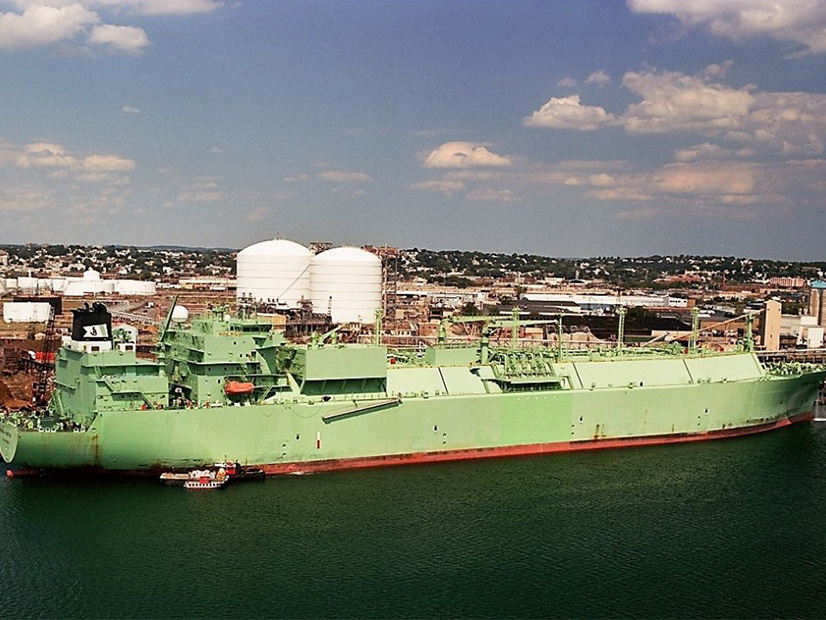
Republicans teed off on President Biden’s pause on processing new applications for LNG exports at a congressional hearing Feb. 6. (See Report: Biden Admin to Evaluate LNG Terminals’ Impact on Climate.)
“In addition to undercutting our domestic energy industry, President Biden’s decision is a gift to Vladimir Putin,” said Rep. Jeff Duncan (R-S.C.), chair of the House Energy, Climate & Grid Security Subcommittee. “Global demand for natural gas is expected to increase 46% by 2050. And our European and Asian allies who want to do business with the United States will now look to Qatar, Russia and Iran to meet their growing energy needs.”
Duncan said committee leaders had invited a speaker from the Department of Energy, but nobody from the administration came. Undersecretary of Energy David Turk is scheduled to testify on the subject at a Senate Energy & Natural Resources Committee hearing Feb. 8.
The pause comes after the industry already has built enough capacity to export 14 billion cubic feet per day, with enough under construction to double that capacity, said Subcommittee Ranking Member Diana DeGette (D-Colo.). Additional projects with full approvals from FERC and DOE, but yet to start construction, would triple that capacity, DeGette said.
None of those facilities under development will be affected by the pause in reviews, she added. The last time the review process for new export facilities was updated was 2018, when export capacity was just one-third of today’s level.
“The fact that our nation’s production has ramped up so quickly must be considered, especially since the U.S. currently has enough approved capacity to fulfill the world’s energy needs in the short and medium terms,” DeGette said. “Continuously increasing LNG exports, without updating guidelines to account for new information, is a fundamentally unserious proposal.”
EQT calls itself the largest producer of natural gas in the country, with its drilling focused around the Marcellus and Utica shales in Pennsylvania, Ohio and West Virginia. EQT CEO Toby Rice blasted the decision to pause approvals for new export facilities.
“The Biden administration’s decision was pure politics,” Rice said. “The moratorium was made under the guise of updated research and a claim that we needed updated studies on the environmental and economic impact of U.S. LNG. But we all know what it really is, and that’s an election-year stall designed to garner votes.”
Europe has had to rely on importing LNG from the U.S. since its countries were cut off from Russia following its invasion of Ukraine, said Brigham McCown, senior fellow at the Hudson Institute. Last month, spot prices there averaged $9.56/MMBtu (million British thermal units), while Henry Hub gas was at just $2.26/MMBtu this week, McCown said.
“Europe should not be allowed to recede into the background,” McCown said. “Energy security highlights the need for a comprehensive approach and a stable policy environment coupled with innovation, technology and international cooperation. Our allies would like to be able to have energy security as well.”
Gillian Giannetti is a former high school teacher along the part of Louisiana’s coast called “cancer alley” because of the concentration of industrial facilities and their pollution’s impact on locals. Now senior attorney for the Natural Resources Defense Council’s Sustainable FERC Project, Giannetti said she’s witnessed the effects on her former students, who had high rates of asthma and other respiratory conditions.
The pause impacts only LNG facilities being built to serve countries that do not have a free-trade agreement with the U.S., she noted. DOE must find that a facility shipping gas to non-free trade countries is in the “public interest” to approve it, and so far, it has yet to deny an application for any facility, Giannetti said.
“Put simply, DOE’s tools for assessing whether future gas exports are consistent with the public interest are both obsolete and inapplicable,” she added. “First, DOE has never published guidelines for evaluating the public interest for LNG exports. Never.”
The closest it came was a 1984 effort that sought to come up with rules for LNG imports, which do not work well for licensing export facilities four decades later, Giannetti said. DOE did do some studies on the economic impact of LNG exports in 2018, but they need to be updated too, she added.
The Industrial Energy Consumers of America (IECA) was not invited to testify, but it released comments saying LNG exports affect domestic prices, especially when storage is low. That coincides with demand peaks, which the IECA claims contributed to $84 billion and $53 billion in higher natural gas and electricity prices in 2022 compared to a year earlier.
“Accelerating volumes of LNG exports do have increasing impacts to reliability and prices of natural gas and electricity that are accentuated when inventories are low and during peak winter and summer demand,” said IECA President Paul Cicio. “The relationship is fundamental to the law of supply and demand. Low inventories result in high prices and high inventories result in low prices.”



